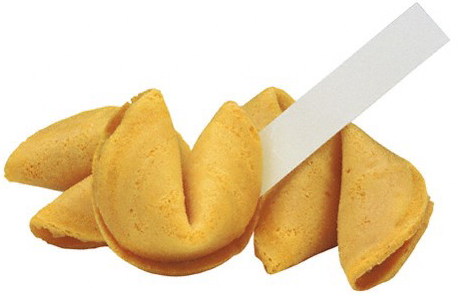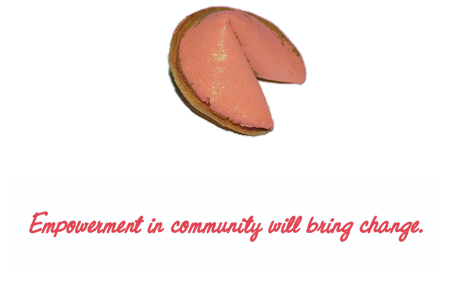
While your cookie fortune is unlikely to come true, they are still a fun way to end a meal.
Fortune cookie origin how to#
Arkansas Gazette (Little Rock, Arkansas), 15 July 1987, page 41įast forward to 2017 and the fortune cookies I recently bought reflect today’s world, with mentions of email, travel, stress relief, and how to be more efficient at work – as well as lucky lottery numbers. This 1987 newspaper article points out that sexist jokes or instructions to kiss your waitress were out and fortunes involving travel and adventure were in. Fortunes are a product of their time, and today’s fortune cookie writers are busy writing fortunes that appeal to today’s generation. The fortunes themselves have changed over the generations to match current society moirés. Recipes sometimes change over time, and in the case of the fortune cookie, the list of ingredients became fewer – but that isn’t the only thing that changed. Arkansas Gazette (Little Rock, Arkansas), 5 December 1968, page 47 Arkansas Gazette (Little Rock, Arkansas), 5 December 1968, page 47 Arkansas Gazette (Little Rock, Arkansas), 5 December 1968, page 47 The “delicate, exotic flavor” that these cookies supposedly have most likely comes from the instant tea powder added to the dough.

This 1968 recipe provides not only ingredients and cooking instructions, but illustrations for folding the fortune cookie. Springfield Union (Springfield, Massachusetts), 5 February 1959, page 24 Springfield Union (Springfield, Massachusetts), 5 February 1959, page 24 Pyron includes with the recipe a story of how she acquired it. This 1959 recipe, courtesy of a newspaper reader who lived in Hawaii, includes a surprising cookie ingredient: oats. In my opinion, fortune cookies are easier bought than made, but there are those more creative cooks who want to try their hand at the making, folding, and fortune writing that is required. It was then that Chinese businessmen started making the popular cookies.* Okamura continued making fortune cookies until World War II, when Japanese-Americans residing in California were forced to relocate to internment camps. Fortune cookies are a regional delicacy in Japan and are made with special molds that can be customized with initials, logos, or designs. One story credits Suyeichi Okamura, a Japanese immigrant who supplied fortune cookies to a San Francisco Japanese Tea Garden in 1906. So, if fortune cookies are not Chinese – what are their origins? As a matter of fact, they have a Japanese origin by way of California! There are several claims to who the originator of the fortune cookie was. We would have such food at tea time.” Lexington Leader (Lexington, Kentucky), 18 April 1966, page 25
/fortune-cookie-on-plate-a0085-000033a-5af872a4eb97de003de6420f.jpg)
One would not find at the end of a meal something similar to your cake or pie.

Our desserts were mostly fruit but not pineapple or kumquats. “I think fortune cookies were invented by a very smart American… Until I came here, I had never seen a fortune cookie. Cookbook author Irene Kuo, who in the 1960s and 1970s was instrumental in promoting Chinese food in the United States, is interviewed in this 1966 newspaper article saying of the famous cookie’s origins: Oregonian (Portland, Oregon), 5 August 1961, page 1Īlong with some other not so “traditional” Chinese foods, fortune cookies are not Chinese. So associated with the Chinese restaurant experience that they are even the object of jokes, fortune cookies have an interesting history – some of which you can find in the newspapers. These bite-sized conclusions to a Chinese dinner are known for their wise (or not so wise) words to diners. Gena is a genealogist and author of the book “ From the Family Kitchen.”įortune cookies are as American as… well, apple pie. She includes some fortune cookie recipes.

Introduction : In this article, Gena Philibert-Ortega searches old newspapers to learn about the origin of Chinese fortune cookies – discovering that they are not Chinese at all, but an American innovation based on Japanese traditions.


 0 kommentar(er)
0 kommentar(er)
